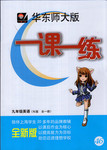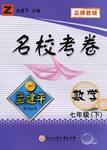题目内容
【题目】此题要求改正所给短文中的错误。文中共有10处语言错误,每句中最多有两处。每处错误仅涉及一个单词的增加、删除或修改。
增加:在缺词处加一个漏字符号(∧),并在其下面写出该加的词。
删除:把多余的词用斜线(﹨)划掉。
修改:在错的词下划一横线(__),并在该词下面写出修改后的词。
注意:
1. 每处错误及其修改均仅限一词。
2. 只允许修改10处,多者(从第11处起)不计分。
The other day after work, I was walking down the street while I saw a boy riding a nice bicycle, one of those bicycle with only one wheel. Dressing in all pink from head to toe, he was singing a song which was sounded like a kid’s song. I thought he must be total crazy. Just then, a lady dropped 20-dollar bill on the ground, but he didn’t realize it and started to walk away. The guy in pink picked out the money and gave it back to her. After that, he rode on but soon disappeared before the lady could thank him. How a strange and good guy!
【答案】
【1】
【2】
【3】
【4】
【5】
【6】
【7】
【8】
【9】
【10】
【解析】
试题分析:本文是一篇记叙文,介绍了生活中的一件小事。有天下班以后,我在路上看到很多人在骑自行车。其中一个人从头到脚都是粉红色,我想他一定是疯了。然后后来我又看到操场上一位女士掉了一张20美元的钞票,这个骑着自行车的男孩把钱捡起来还给那位女士。而那位女士还没来得及感谢他,他就已经消失了。
【1】while→when考查时间状语从句。根据句意可知此处表达的意思是我走在街上的时候看到一个男孩骑着一辆不错的自行车。when和while都可以引导时间状语从句,但是while引导的时间状语从句中的动词必须是延续性动词,而when引导的时间状语从句中的动词可以是终止性动词,也可以是延续性动词;此从句中的动词see不是一个延续性动词,所以应该用when,而不是while。
【2】bicycle→bicycles考查名词。根据句意可知此处表达的意思是那些自行车中的一辆只有一个轮子。此处所指的那些自行车不止一辆,所以应该在bicyle后面加s,构成名词复数形式。
【3】Dressing→Dressed考查非谓语动词。根据句意可知他从头到脚都穿着粉红色,唱的歌儿听起来像一首儿歌。根据句意分析可知后一个分句中不缺少主谓宾等成分,句子结构完整;所以第一个分句作第二个分句的状语,表伴随。又因为后句中的dressed和he之间表达的是是主动语态,所以要用dressed。
【4】去掉was考查固定搭配。根据句意可知他唱的歌儿听起来就像一首儿歌。sth sounds…是固定搭配,意为…听起来…;而且词句中sound就是谓语动词,两个谓语动词不能直接连在一起,所以应该去掉was。
【5】total→totally考查副词。根据句意可知我看到他觉得他一定完全疯了,此处crazy是一个形容词,total也是一个形容词,形容词不能修饰形容词;而副词可以修饰动词、形容词,甚至是一个句子,所以应该将total变成副词totally。
【6】dropped和20-dollar之间加a考查冠词。根据句意可知就在那时,我看到一位女士掉了一张20美元的钞票在地上。此处的20-dollar是形容词,意指20美元的,而句中的名词bill是可数名词,句中的形容词不影响冠词的使用,所以应该在bill前面加冠词a。
【7】he→she考查人称代词。根据句意可知此处表达的意思是这位女士丢了钱但她自己不知道,继续向前走了,根据对上下文的理解可知这个句子中的主语指的是这位lady,所以人称代词应该用she而不是he。
【8】out→up考查固定搭配。根据句意可知此处表达的意思是这个满身粉红色的男孩把地上的钱捡起来给那位女士了,pick up捡起来是固定搭配,而pick out的意思是从…挑选出,所以此处应该使用pick up而不是pick out。
【9】but→and考查连词。根据句意可知此处表达的意思是这个男孩骑着车并且很快就消失了,句中骑车和消失两个动作是并列的,没有转折关系,所以应该用but而不是and。
【10】How→What考查感叹句。根据句意可知此处表达的意思这是一个多好的人啊!感叹句有两种表达方式;一种是what+a/an+adj+…;另一种是表达方式是how+adj+…。此句中形容词前面有冠词a,所以感叹句中应该用what而不是how。

 华东师大版一课一练系列答案
华东师大版一课一练系列答案 孟建平名校考卷系列答案
孟建平名校考卷系列答案【题目】请阅读下面短文,并根据所读内容在文章后表格中的空格里填入一个最恰当的单词。
注意: 请将答案写在答题卡上相应题号的横线上。 每个空格只填一个单词。
People select news in expectation of a reward. This reward may be either of two kinds. One is related to what Freud calls the Pleasure Principle, the other to what he calls the Reality Principle. For want of better names, we shall call these two classes immediate reward and delayed reward.
In general, the kind of news which may be expected to give immediate reward are news of crime and corruption, accidents and disasters, sports, social events, and human interest. Delayed reward may be expected from news of public affairs, economic matters, social problems, science, education, and health.
News of the first kind pays its rewards at once. A reader can enjoy an indirect experience without any of the dangers or stresses involved. He can tremble wildly at an axe-murder, shake his head sympathetically and safely at a hurricane, identify himself with the winning team, laugh understandingly at a warm little story of children or dogs.
News of the second kind, however, pays its rewards later. It sometimes requires the reader to tolerate unpleasantness or annoyance — as, for example, when he reads of the threatening foreign situation, the mounting national debt, rising taxes, falling market, scarce housing, and cancer. It has a kind of “threat value.” It is read so that the reader may be informed and prepared. When a reader selects delayed reward news, he pulls himself into the world of surrounding reality to which he can adapt himself only by hard work. When he selects news of the other kind, he usually withdraws from the world of threatening reality toward the dream world.
For any individual, of course, the boundaries of these two classes are not stable. For example, a sociologist may read news of crime as a social problem, rather than for its immediate reward. A coach may read a sports story for its threat value: he may have to play that team next week. A politician may read an account of his latest successful public meeting, not for its delayed reward, but very much as his wife reads an account of a party. In any given story of corruption or disaster, a thoughtful reader may receive not only the immediate reward of indirect experience, but also the delayed reward of information and preparedness. Therefore, while the division of categories holds in general, an individual’s tendency may transfer any story from one kind of reading to another, or divide the experience between the two kinds of reward.
What news stories do you read? | |
Division of news stories | ● People expect to get【1】from reading news. |
【2】ofthe two classes | ● News of immediate reward will seemingly take their readers to the very frightening scene without actual【3】. |
● News of delayed reward will make readers suffer, or present a【5】to them. | |
Unstable boundaries of the two classes | ● What readers expect from news stories are largely shaped by their【8】. |